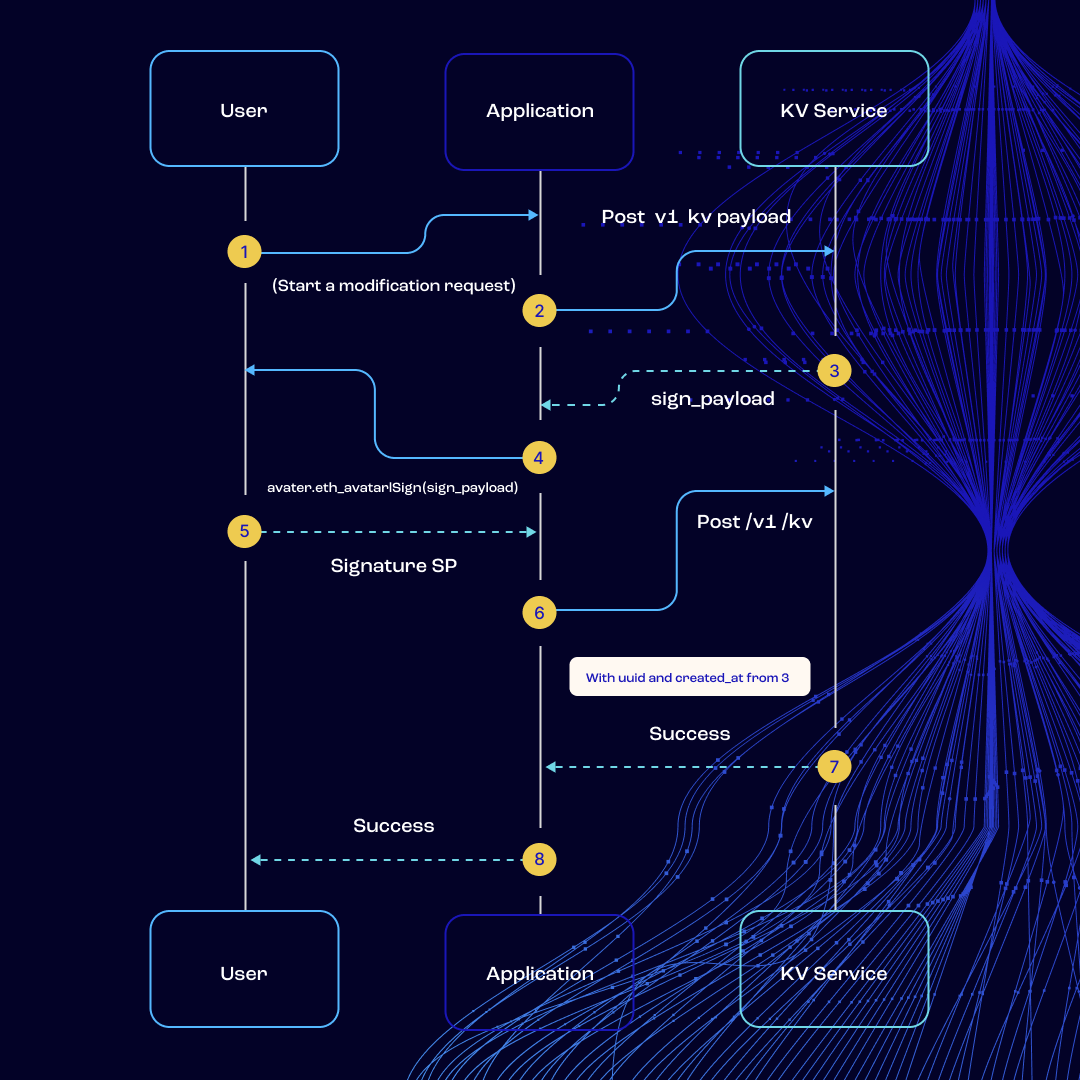Decentralized Storage, KV Service
While developing the Next.ID, we found that we still need a place to keep some customized data in some cases. However, placing everything on the blockchain wasn't a reasonable choice. This led us to create the KV service as a user-friendly tool for storing some customized data. Through cryptographic verification, the KV Service ensures that only the avatar's owner can manage (create and modify) its content, while allowing others to read it.
How it works
KV Service can store any valid JSON object data. There are serval APIs for reading and writing the data.
Work Flow for writing

The generation signature and verification steps to guarantee the modification request is from the owner of Avatar.
Query data
After writing the data, everyone can get it via API.See GET /v1/kv.
Design
-
Each user has
1 + Nnamespaces:- Avatar itself has a namespace (
platform == "nextid" && identity == "0xAVATAR_PUBLIC_KEY")- There's no limitation that Avatar should be used in ProofService once.
- Each binding record (in ProofService) of each Avatar has a namespace.
- Value of
platformandidentityare the same as supported platforms in ProofService.
- Value of
- Avatar itself has a namespace (
-
Query data: public, only need to specify
avatar. -
Write data: A patch followed RFC 7396 standard.
A glimpse of RFC7396
// Assume current data is:
{
"a": {
"b": [2, 3, 4, "test"]
},
"c": "Hello"
}
// If this patch is submitted:
{ "a": { "b": null, "new_key": true }, "c": "KVService" }
// Then patched data will become:
{
"a": {
"new_key": true
},
"c": "KVService"
}
// Notice: nested modification of Array value is not supported.
// Replace the whole Array with new value instead.
Notice
-
Each app should use its "package name" as its own namespace, to ensure other apps are not infected by your modification.
For example, I as a developer, identify my app as
io.mask.web3-profile-plugin,Then I should make the modifications under
{ "io.mask.web3-profile-plugin": .... }key. -
Theoretically, there is no size limitation for data. FairUse™️, please.
If you want to store data bigger than a string can handle, consider Arweave.
Use Case - as a persistence storage
You can use KV Service to store the data that needs cross-session persistence.
For example, you can store the user's avatar, nick name, bio, show/hide status of NFT list, or order of these contents, under your web3 app's scenarios.
Using KV Service gives you some benefits:
- The change made by the user is verifiable by other user/applications, aka platform-independent. No one (except the user himself) can change the data without a valid signature.
- The data is stored in a decentralized way, no matter where this data is actually stored. User always has a choice to move their data to other (or self-hosted) platforms.
The actual "migration" function is still under development.